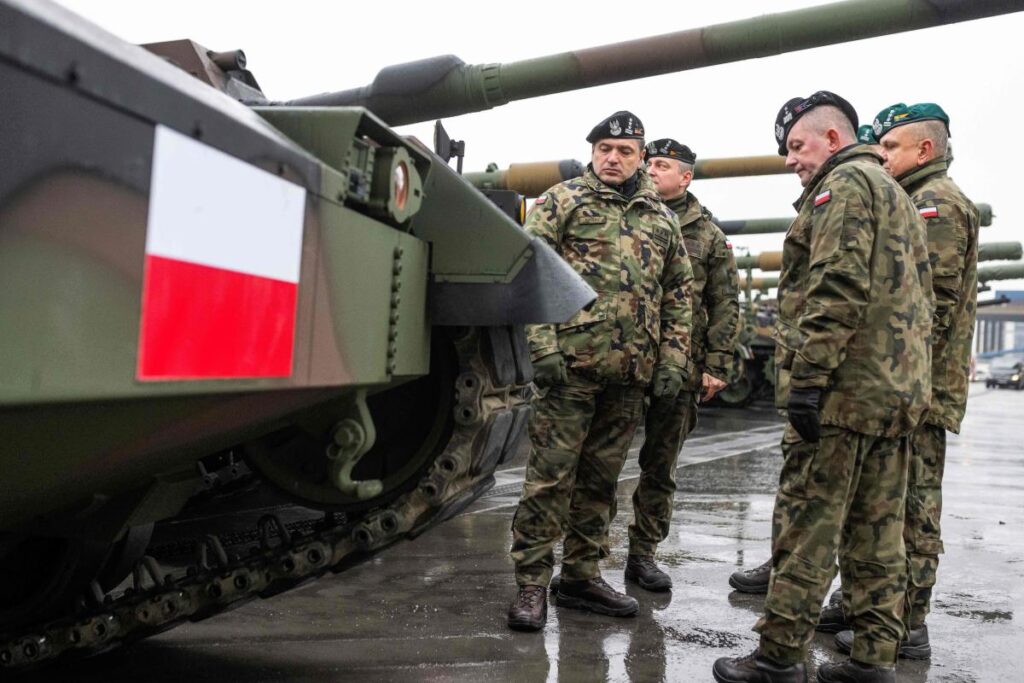Polish President Andrzej Duda has definitively ruled out the possibility of supplying modern weaponry, including advanced tanks, self-propelled howitzers, missile launchers, and light attack aircraft, to Ukraine. This announcement came during his official visit to South Korea on October 25, where he met with South Korean President Yoon Suk Yeol. Following Yoon’s declaration that South Korea is contemplating supplying weapons to Ukraine to assist in its ongoing struggle against the Russian invasion, Duda was questioned about the potential for Poland to also provide its newly acquired South Korean military equipment. He responded firmly, stating, “There is no scenario under consideration in which we transfer the weapons that we have acquired … with taxpayers’ money, to anyone,” emphasizing his position on the issue.
President Duda’s categorical statement illustrates his commitment to safeguarding Poland’s military assets, acquired at substantial costs to taxpayers. He noted that Ukrainian leaders had directly requested Polish weaponry, but he reiterated his stance: “My answer was unequivocal: There is no such possibility, as long as I’m president, that we give to anyone the weapons that we have bought for billions of dollars … over the past years.” This firm declaration underlines Poland’s strategic decision to focus on its military capacity rather than diverting resources to aid Ukraine, even amidst ongoing conflict in the region.
Poland has played a pivotal role as a supporter of Ukraine since the onset of Russia’s full-scale invasion in February 2022. The country has delivered a range of military support, including tanks, armored vehicles, howitzers, and fighter jets, predominantly from the Soviet-era arsenal that Poland inherited. However, the situation has evolved over the past year, leading to increased tensions between Warsaw and Kyiv, particularly highlighted by disputes over a Polish ban on Ukrainian grain imports. These conflicts have added complexity to their previously strong defense cooperation.
Despite the strain in bilateral relations, Poland’s centrist government under Prime Minister Donald Tusk continues to endorse Ukraine’s defense initiatives. The two nations signed a security cooperation agreement in July 2024 that aims to deepen military cooperation. This agreement focuses on several key areas, such as enhancing the integration of Ukraine’s defense industry with Western partners, and intensifying air-defense collaboration should Ukraine come under attack. This reflects Poland’s ongoing commitment to supporting its neighbor while balancing its national interests.
The evolving context of international military support highlights the balancing act that Poland and other nations face in the current geopolitical climate. While Poland remains committed to its agreement with Ukraine, the refusal to supply new weapons indicates a deliberate strategy to concentrate on strengthening its military infrastructure without risking the loss of essential resources in a time of heightened tensions. This approach demonstrates a cautious stance that prioritizes national security and sustainability over international pressures or expectations.
In conclusion, Poland’s leadership under President Duda exhibits a strong resolve to maintain control over its military acquisitions, directing resources toward enhancing its own defense capabilities rather than transferring modern equipment to Ukraine. While historical alliances and commitments have defined much of the relationship between Poland and Ukraine, growing internal and external pressures complicate future military collaborations. As international dynamics shift and the conflict continues to evolve, Poland’s strategic decisions will likely continue to reflect a balance between collaboration and self-preservation in the context of regional security.

